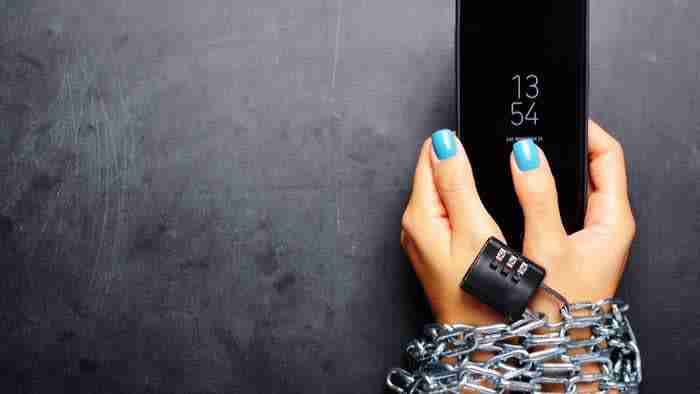How do I break my social media addiction?
by Miles Warren
May 19,2022
Social media connects us to new people and ideas — for better or worse. It’s also a massive time suck that can wipe out a whole day and get in the way of accomplishing goals.

The word “addiction” brings to mind drugs and alcohol. It might seem too strong a word to apply to something like social media, right?
Well, not exactly. Though social media addiction has yet to secure an official spot in the DSM , it’s already become quite prevalent in the U.S. and Europe. It is affecting up to 8.2% of the general population.
How often are you on track, knocking tasks off your to-do list when a friend request or Instagram comment derails your progress ? One second you’re typing up an email, and the next, you’re deep into some acquaintance’s 2016 vacation pics.
All of us are susceptible to succumbing to these distractions, but there are some things you can do to fight full-blown social media addiction.
Here are some tips you can use to regain control:
Learn why you’re addicted to social media

What is it you hope to gain from opening social media? Uncovering the “why” behind your bad habit does require some introspection.
You might not have a good reason for your endless scrolling. If that’s the case, take a closer look at your motive. Do you hit the ‘gram when you’re stressed or overwhelmed? Or, is it when you’re trying to put off a project you don’t want to start?
Perhaps, you’re seeking connections with the outside world or accessing new information.
In any case, we tend to lean on social media to fill a void. Psychology Today describes this endless scroll as this “wanting activity.” Meaning, we tend to keep looking at our feeds because we’re anticipating some reward.
It’s also a lot easier to veg out in front of your feed than picking up a book or phoning a friend. This just adds to the temptation.

Social media adds 24/7 emotional burdens
Reset
One way to fight social media addiction is by taking a day off . Consider taking a day each week where you avoid using the phone or your computer.
This gives you some space to schedule some in-person social time. Do some analog reading, or you know, go outside.
That said, a full day of no socializing might add to your anxiety for a lot of people. If that’s you, aim for a couple of hours at a time.
Set ‘micro-boundaries’
Micro-boundaries is a concept developed by University College London researchers. It refers to a handful of ways to set distance between you and your bad social media habits.
The researchers say there are four types of micro-boundaries.
The UCL paper does acknowledge that you may need to let others know about these digital boundaries. If you’re a quick responder, then you might need to give people a heads-up.
Focus on what you can add to your life
Like going on a diet, prohibiting the use of social media isn’t sustainable for the long-term . Instead, you should try setting achievable goals. Habit formation depends on training the brain to get that reward satisfaction from a healthier source.
Plan a cell phone-free dinner once a week, get into hiking, biking, or exploring your neighborhood.
How to break a bad habit
Disable your alerts
Alerts play into our brain’s reward center, providing a rush of dopamine when we hear those familiar sounds.
According to Harvard researchers, Instagram likes, and text messages activate the same release of dopamine you’d receive from completing a “successful social interaction .” The article also notes that dopamine paths are often dysfunctional in people will any type of addiction, be it substance abuse, gambling, or Facebook.
The thing about disabling notifications is, you still have access to everything you want from your phone/computer. However, it provides a level of separation between you and your apps.
Wrapping up
Most of the notifications you receive don’t contain critical time-sensitive information. But for a lot of people, opting out of push notifications can present interpersonal challenges. Your mom or your partner might get annoyed when you don’t respond ASAP.
This study, aptly named The Do Not Disturb Challenge had interesting results. They found that while participants felt more productive after turning off their notifications, they also felt anxious about not being as responsive as expected.
So, again, success may depend on convincing your colleagues and text-happy friends to take a more moderate approach to social media.
More about Mental Health
Social media worse for mental health than we thought ►
Social media adds 24/7 emotional burdens ►
Instagram wrestles with mental health concerns ►
Top 7 mental health YouTubers ►
